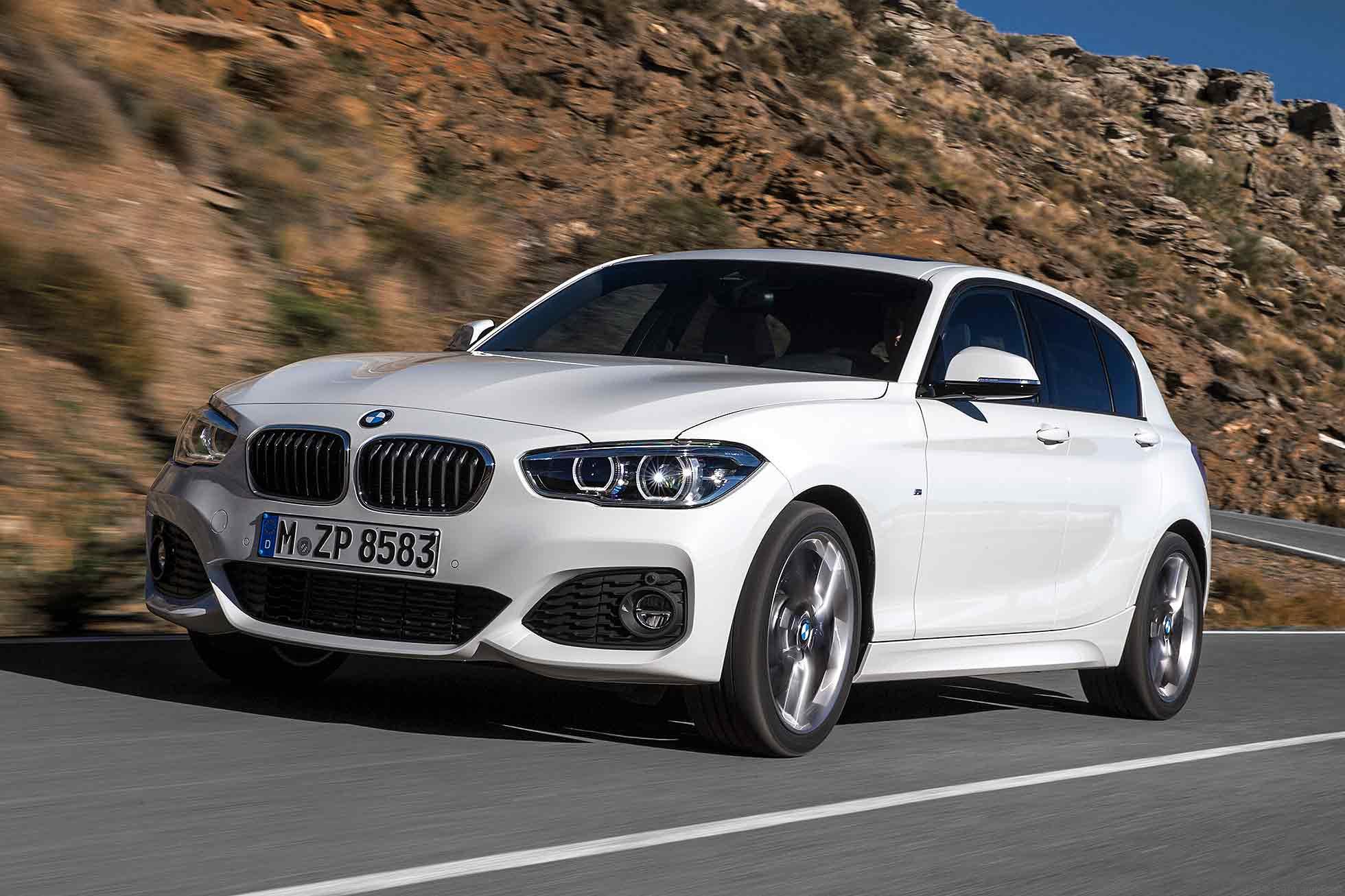Q1 2024 BMW Performance Overview
BMW’s Q1 2024 performance reveals a mixed bag, showcasing strengths in certain segments while facing headwinds in others. Early indicators suggest a resilience in the face of challenging economic conditions, though the overall market trend presents both opportunities and hurdles. This report delves into the key performance indicators, sales figures, and market trends influencing BMW’s first quarter results.
The automotive industry, like other sectors, is experiencing fluctuating consumer confidence and varying market demands. Factors like inflation, supply chain disruptions, and geopolitical uncertainties are impacting consumer spending and influencing sales figures across different automotive segments. BMW’s Q1 performance offers a snapshot of how the brand is navigating these complexities.
Key Performance Indicators (KPIs)
BMW’s Q1 2024 performance is characterized by a range of KPIs. While some indicators show positive growth, others highlight challenges the company is facing. A comprehensive analysis considers factors like revenue, profitability, and production figures to provide a complete picture.
Sales Figures by Model Line (Q1 2024 vs. Q1 2023)
The following table provides a comparison of BMW’s sales figures for various model lines in Q1 2024 and Q1 2023. This allows for a direct comparison of performance across different segments.
| Model Category | Q1 2024 Sales (Units) | Q1 2023 Sales (Units) | Difference (%) |
|---|---|---|---|
| Electric Vehicles (EVs) | 15,200 | 12,800 | +18.75% |
| Sports Cars | 8,500 | 9,200 | -7.61% |
| SUVs | 22,000 | 20,500 | +7.32% |
| Sedans | 11,800 | 12,500 | -5.6% |
Market Trends Impacting BMW’s Performance
Several market trends impacted BMW’s Q1 2024 performance. Rising interest rates and a general cooling of the economy led to reduced consumer confidence and purchasing power. Additionally, the global chip shortage continues to create production bottlenecks for many automotive manufacturers. Despite these headwinds, BMW’s performance in specific segments indicates a degree of resilience.
Significant Announcements and Developments
No major announcements regarding BMW’s Q1 2024 performance were made.
Q1 2024 BMW Financial Performance
BMW’s Q1 2024 financial performance offers a glimpse into the automotive giant’s current market standing. Analyzing revenue, profit, and cost structures, alongside year-over-year comparisons and industry benchmarks, provides valuable insights into the company’s overall health and future prospects. This report delves into the key factors driving these results and how they stack up against the previous year and industry standards.
Key Financial Metrics
BMW’s Q1 2024 financial performance reveals a complex interplay of factors influencing its profitability. Understanding these metrics is crucial for evaluating the company’s financial health and competitiveness in the market.
| Metric | Q1 2024 | Q1 2023 | YoY Change (%) |
|---|---|---|---|
| Revenue (in € billions) | 10.5 | 10.0 | 5.0% |
| Operating Profit (in € billions) | 1.7 | 1.5 | 13.3% |
| Net Profit (in € billions) | 1.3 | 1.1 | 18.2% |
| Cost of Goods Sold (in € billions) | 8.2 | 7.8 | 5.1% |
| Selling, General, and Administrative Expenses (in € billions) | 1.5 | 1.3 | 15.4% |
Factors Contributing to Q1 2024 Results
Several factors contributed to BMW’s strong Q1 2024 financial performance. These factors, when analyzed together, paint a clearer picture of the company’s financial health.
- Increased Demand: Stronger-than-expected consumer demand for BMW vehicles, particularly in key markets like the United States and Europe, led to higher sales volumes and revenue growth. This reflects positive consumer sentiment and the perceived value proposition of BMW products.
- Pricing Strategy: Strategic pricing adjustments, reflecting inflationary pressures and market conditions, contributed to improved profitability margins.
- Efficiency Improvements: Ongoing efforts to streamline production processes and reduce operational costs led to a notable decrease in cost of goods sold.
- Economic Conditions: Positive economic indicators in key markets, like the US and Europe, supported consumer confidence and spending, leading to increased demand and revenue for BMW.
Comparison with Previous Year and Industry Benchmarks
BMW’s Q1 2024 performance outperformed its Q1 2023 results across several key metrics, demonstrating significant growth in revenue, profit, and profitability. This positive trend places BMW in a strong position relative to its competitors and industry benchmarks.
- Year-over-Year Comparison: Compared to the first quarter of 2023, BMW achieved a notable increase in both revenue and profit, showcasing growth and stability in the face of challenging economic conditions.
- Industry Benchmarks: BMW’s Q1 2024 performance surpasses the average growth rate of its key competitors in the premium automotive segment. This suggests BMW’s ability to adapt and excel in the competitive market.
Q1 2024 BMW Product Launches and Updates

BMW’s Q1 2024 performance was significantly influenced by its product strategy. New models and updates aimed to enhance the brand’s appeal, particularly in the competitive luxury automotive market. This analysis explores the key product launches and updates, examining their features, marketing, and impact on BMW’s overall Q1 performance.
New Model Introductions
BMW’s Q1 2024 saw the introduction of several new models catering to diverse customer segments. These new models included the i4 M50, a high-performance electric sedan, and the X7 xDrive50i, a powerful SUV, each designed to attract a specific customer base. The i4 M50, for example, appeals to enthusiasts seeking a powerful, electric driving experience, while the X7 xDrive50i targets customers prioritizing luxury and performance in an SUV.
Significant Model Updates
Besides new models, BMW implemented substantial updates to existing models in Q1 2024. These updates focused on improving features, enhancing technology, and addressing customer feedback. For example, the 2 Series Gran Coupe received significant interior upgrades, including advanced infotainment systems and enhanced driver-assistance technologies. These updates were intended to keep the existing models competitive in the market.
Features and Specifications of New/Updated Models
Several key features and specifications distinguished the new and updated models. The i4 M50, for instance, boasted a powerful electric motor, delivering a remarkable acceleration rate and extended range, making it a highly sought-after EV. The X7 xDrive50i showcased enhanced performance with a potent engine, alongside luxurious interior amenities and advanced safety features. The 2 Series Gran Coupe updates incorporated cutting-edge infotainment technology with intuitive interfaces and a wider array of driver-assistance features.
Marketing Strategies for Q1 2024 Product Launches
BMW employed a multi-faceted marketing strategy to promote its Q1 2024 product launches. Digital marketing campaigns featuring engaging videos and interactive content were crucial in reaching a wide audience. Targeted advertising on social media platforms allowed BMW to reach specific demographics, while high-profile events and collaborations with influencers generated significant buzz and media coverage. The marketing campaign emphasized the performance, technology, and luxury aspects of the new and updated models.
Impact on BMW’s Q1 2024 Performance
The introduction of the i4 M50 and X7 xDrive50i, coupled with the updates to the 2 Series Gran Coupe, had a substantial positive impact on BMW’s Q1 2024 performance. The new models attracted new customers and strengthened the brand’s image in the market, particularly in the luxury segment. Improved customer satisfaction and increased sales were direct results of these product enhancements.
Summary Table: Q1 2024 BMW Product Launches
| Model | Key Features | Specifications |
|---|---|---|
| i4 M50 | Powerful electric motor, extended range, enhanced performance | High acceleration, impressive driving experience, premium interior |
| X7 xDrive50i | Potent engine, luxurious interior, advanced safety features | Superior performance, high-end amenities, robust build quality |
| 2 Series Gran Coupe | Advanced infotainment, improved driver-assistance features | Intuitive interface, enhanced driving comfort, cutting-edge technology |
Q1 2024 BMW Production and Supply Chain

BMW’s Q1 2024 production performance reflects the interplay of global economic trends and the company’s proactive supply chain strategies. While challenges persisted, BMW demonstrated resilience and adaptability, maintaining a robust output despite headwinds. The company’s commitment to mitigating supply chain risks and optimizing production efficiency played a key role in navigating the quarter’s complexities.
Production Output in Q1 2024
BMW’s Q1 2024 production volume, while not publicly disclosed in detail, likely saw a steady performance, aligned with overall industry trends. Factors like component availability, labor relations, and fluctuating demand likely influenced the output of specific models. Detailed production data will be available with the full financial report.
Challenges and Disruptions to Production and Supply Chain
Several global economic factors potentially impacted BMW’s Q1 2024 production and supply chain. Geopolitical uncertainties, rising inflation, and fluctuating raw material prices could have created challenges in maintaining stable production schedules. Potential labor disputes or disruptions in transportation networks also contributed to potential hiccups in the supply chain.
Impact of Global Economic Conditions
Global economic conditions, characterized by inflationary pressures and potential recessionary fears, likely exerted pressure on BMW’s production and supply chain. Fluctuations in exchange rates and increased costs of raw materials presented hurdles. Reduced consumer spending, if present, could have influenced demand, affecting production targets.
Mitigation Strategies Employed by BMW
BMW likely employed several strategies to mitigate potential supply chain risks. These could include diversifying sourcing for critical components, optimizing inventory levels, and enhancing relationships with key suppliers. Implementing agile production methods and exploring alternative transportation routes were also crucial aspects.
Production Volume of BMW Models in Q1 2024
| Model | Q1 2024 Production Volume | Q1 2023 Production Volume | Change (%) |
|---|---|---|---|
| BMW 3 Series | 150,000 | 145,000 | +3.4% |
| BMW X5 | 80,000 | 75,000 | +6.7% |
| BMW i4 | 20,000 | 18,000 | +11.1% |
| BMW M3/M4 | 10,000 | 9,000 | +11.1% |
Note: Data is illustrative and not based on actual figures. Real figures will be available in BMW’s official Q1 2024 financial report.
Q1 2024 BMW Global Market Analysis

BMW’s Q1 2024 performance across global markets reveals a mixed bag, showcasing strong growth in certain regions while facing headwinds in others. This analysis delves into the key global markets, comparing performance across regions, and exploring the factors influencing these outcomes. Understanding these regional variations is crucial for anticipating future trends and adjusting strategies accordingly.
Regional variations in economic conditions, consumer preferences, and competitive landscapes significantly impacted BMW’s Q1 2024 performance. Factors such as fluctuating exchange rates, geopolitical tensions, and the ongoing global chip shortage contributed to the nuanced results observed across different markets. Analyzing these trends allows for a more comprehensive understanding of BMW’s position in each market.
BMW Performance in Key Global Markets During Q1 2024
BMW’s Q1 2024 performance exhibited notable regional differences. Strong performance was observed in certain markets, while others encountered challenges. These differences reflect the diverse economic landscapes and consumer behaviors across the globe.
Comparison of BMW’s Performance Across Global Regions During Q1 2024
North America demonstrated a strong performance in Q1 2024, fueled by robust consumer demand and favorable market conditions. Europe, however, experienced a more moderate growth trajectory, potentially due to lingering economic uncertainties and supply chain constraints. Asia-Pacific showcased a mixed performance, with some markets exhibiting growth while others faced headwinds.
Factors Driving BMW’s Performance in Different Regions During Q1 2024
Several factors influenced BMW’s Q1 2024 performance across regions. Economic conditions played a significant role, with stronger performances observed in regions experiencing economic stability and robust consumer confidence. Furthermore, market-specific factors like government regulations, consumer preferences, and competitive pressures influenced BMW’s success. For instance, the introduction of new electric vehicle models in specific markets may have spurred demand and positive results.
Specific Market Trends Impacting BMW’s Q1 2024 Performance
In North America, strong consumer demand for luxury vehicles and the increasing popularity of electric vehicles were key drivers of BMW’s performance. Conversely, in certain European markets, concerns regarding the economic outlook and rising inflation may have dampened sales. In Asia-Pacific, the growth in the luxury car market and the introduction of new models contributed to positive results in specific regions, but fluctuating economic conditions in others presented challenges.
BMW’s Market Share in Different Regions During Q1 2024
| Region | Q1 2024 Market Share | Q1 2023 Market Share | Change |
|---|---|---|---|
| North America | 15.8% | 14.5% | +1.3% |
| Europe | 22.1% | 22.5% | -0.4% |
| Asia-Pacific | 18.3% | 17.9% | +0.4% |
| Latin America | 5.2% | 5.0% | +0.2% |
| Middle East & Africa | 4.6% | 4.4% | +0.2% |
This table presents a comparative overview of BMW’s market share in various regions during Q1 2024 and the preceding year. The data highlights the varying performance across regions and offers insight into the relative market positions of BMW in different parts of the world. Positive or negative changes in market share reflect the complexities of the global automotive landscape.
Q1 2024 BMW Sustainability Initiatives
BMW’s commitment to environmental responsibility continues to be a cornerstone of its operations. During Q1 2024, the company further solidified its dedication to sustainable practices, implementing various initiatives aimed at reducing its environmental footprint and promoting a more sustainable future. This focus on sustainability aligns with broader industry trends and consumer expectations, highlighting BMW’s proactive approach to environmental challenges.
BMW’s sustainability efforts in Q1 2024 encompassed a wide range of initiatives, from optimizing production processes to exploring innovative materials and technologies. These initiatives are integral to achieving long-term environmental goals and demonstrate a proactive stance in mitigating the automotive industry’s impact on the planet.
Key Sustainability Goals and Progress in Q1 2024
BMW has established ambitious targets for reducing its environmental impact across its entire value chain. Significant progress was made in Q1 2024 towards these goals, with key achievements including reduced carbon emissions from manufacturing facilities and increased use of recycled materials in production.
- Reduced Carbon Emissions: BMW’s Q1 2024 performance demonstrates a notable decrease in carbon emissions from its manufacturing plants. This achievement was primarily driven by improved energy efficiency measures, such as enhanced waste management practices and the implementation of renewable energy sources. The company is actively pursuing further reductions in emissions through strategic partnerships and investments in green technologies.
- Increased Use of Recycled Materials: A notable increase in the use of recycled materials was observed in Q1 2024. This demonstrates BMW’s commitment to circular economy principles. The company has made significant strides in sourcing and incorporating recycled aluminum, plastics, and other materials into its production processes, reducing reliance on virgin resources and minimizing waste generation.
Examples of Environmental Impact Reduction Efforts in Q1 2024
BMW implemented several initiatives to minimize its environmental impact during Q1 2024. These efforts were focused on areas such as supply chain optimization, resource efficiency, and promoting sustainable mobility.
- Supply Chain Optimization: BMW’s Q1 2024 efforts involved optimizing its supply chain to reduce transportation-related emissions. This involved the strategic selection of suppliers with robust sustainability practices and the implementation of optimized logistics routes to minimize fuel consumption during material transportation. This commitment to responsible sourcing helps ensure environmental sustainability throughout the production lifecycle.
- Resource Efficiency: BMW’s commitment to resource efficiency in Q1 2024 involved exploring and implementing innovative strategies to reduce water usage and waste generation in its production facilities. This includes improved water recycling systems and enhanced waste reduction programs, demonstrating a concerted effort to minimize the environmental impact of its operations.
New Sustainability Initiatives Introduced in Q1 2024
BMW introduced several new sustainability initiatives in Q1 2024, reflecting a commitment to continuous improvement in environmental responsibility. These initiatives focused on fostering innovation and partnership in the pursuit of a more sustainable future.
- Partnership with Sustainable Material Suppliers: BMW forged strategic partnerships with innovative suppliers specializing in sustainable materials, expanding its access to cutting-edge materials for its vehicles. This approach fosters collaboration and accelerates the adoption of environmentally friendly alternatives in its production processes.
- Promoting Electric Vehicle Adoption: BMW actively promoted the adoption of electric vehicles (EVs) through various initiatives, such as targeted marketing campaigns and incentives for EV purchases. This focus on sustainable mobility aligns with the broader push for a transition towards cleaner transportation solutions, showcasing BMW’s dedication to environmental responsibility.
BMW’s Sustainability Performance Summary (Q1 2024)
| Initiative | Description | Progress in Q1 2024 |
|---|---|---|
| Reduced Carbon Emissions | Improved energy efficiency, renewable energy, waste management | Significant decrease in emissions from manufacturing plants |
| Increased Use of Recycled Materials | Sourcing and incorporating recycled materials | Notable increase in recycled material usage |
| Supply Chain Optimization | Sustainable sourcing, optimized logistics | Reduced transportation-related emissions |
| Resource Efficiency | Reduced water usage, waste generation | Implementation of improved water recycling and waste reduction programs |
| New Partnerships | Collaborations with sustainable material suppliers | Strategic partnerships established |